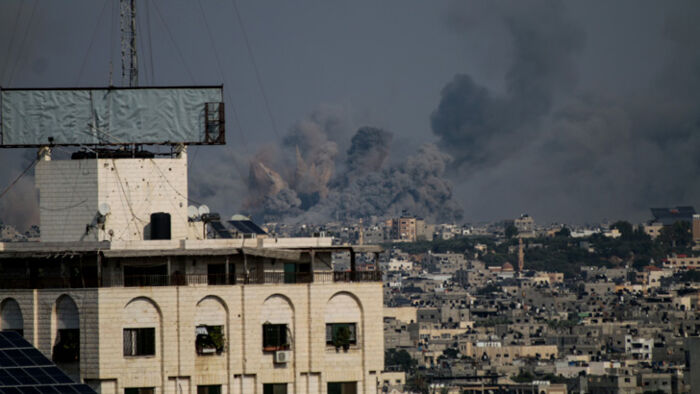Middle East conflict and travel insurance explained
By Natalie Ball
Amid the war in Israel and Gaza, and escalating tensions in the Middle East, those planning to travel to the region may be feeling trepidation and wondering if they can to cancel their trip without losing money.
Last week Australians were told to leave Israel and Lebanon while they still could, however, Egypt's borders remain open, and airlines are continuing to operate in the country.
The Australian government advises those travelling to Egypt to 'reconsider your need to travel' to Egypt overall. However, there is a 'Do Not Travel' warning in place within 50 km of Egypt's border with Libya and the Governorate of North Sinai, due to the high risk of terrorist attack and violent crime.
While the Australian government has not upgraded its travel warning to Jordan, Turkey and Morocco, it continues to advise 'a high degree of caution' in all three destinations.
Am I covered by travel insurance?
Those wishing to cancel their trip and claim back their prepaid travel costs are unlikely to be covered, although this depends on your insurer and individual circumstances.
Coverage would depend on your destination and when you purchased your policy.
The current hostilities are 'known events', so if you have not already purchased a policy and you're heading to the Middle East you would not be covered for any claim arising because of the conflict.
It is also important to note that most travel insurers exclude acts of war, political unrest and acts of terrorism from trip cancellation. However, some insurers do allow provision to claim if the government has changed or upgraded the travel warning to your planned destination since you bought your policy.
Australians are being advised to reconsider their need to travel to Israel. It is also advising 'do not travel' to Lebanon or the Gaza Strip. If you bought a policy prior to these changes, you may have provision to cancel if you had planned to travel to those destinations.
While Egypt's advice level has not changed, those wanting to cancel should first contact their travel providers to assess their options to change their travel plans. For example, Qantas is offering fee-free refunds for those that were booked to travel to Israel.
Does travel insurance cover war and conflict?
While most insurers rule out cover for war and overseas conflicts, cover would depend on the insurers' specific policy wording.
A few insurers will cover cancellation if a travel advisory has been issued by the Australian Government. For some insurers this could mean an upgrade to a Level 4 'Do not travel' warning.
A reminder as well that your trip would need to be directly affected in order to be able to claim under your travel insurance, for example, your accommodation may no longer be habitable, or your flights may have been cancelled due to the ongoing situation.
Will I be out of pocket if I cancel my trip?
The highly volatile nature of the events in the Middle East means travellers should contact their travel providers directly before making a claim through their insurer.
Given the uncertainty of travel in recent years, and the highly unstable nature of this unfolding event, many travel service providers do offer flexible options if you need to rearrange your travel plans, so you may not lose all your prepaid costs. Explore what credit or options are provided to you by your airline or booking agent and keep in mind that all travel insurance claims will be assessed on an individual basis.
Most travel insurance policies are also flexible in allowing you to change your travel dates if you wish to postpone your trip, or even change your destination.
Keep informed
Those currently in the Middle East or wishing to visit surrounding regions should take all necessary precautions, use common sense, and follow the advice of authorities.
Given the upgraded travel advice, Australians who are currently in the Middle East should remain vigilant at this sensitive time and stay well informed. Keep important phone numbers stored in an offline location and be sure to register your travels with DFAT.
Ensure your safety
If you're heading to a high-risk country keep safe with these tips:
Take travel insurance
If you are leaving Australia, travel insurance is as essential as your passport. Contact your insurer to see what they say about coverage when visiting countries with government advisories and make sure you are clear on the terms of your cover. As boring and lengthy as they are, you should read the policy documents to understand any destination exclusions that may apply to your travels.
Register with Smart Traveller
You should register your travel plans with smarttraveller.gov.au so that DFAT knows your whereabouts and can contact you or your family in the event of an emergency. You can also subscribe to travel advice and bulletins to stay abreast of any current events and be the first to know official government advice when travelling.
Do your research
Being informed and understanding the political status and cultural norms of your destination is essential. Keep updated and read a variety of sources before booking.
Get stories like this in our newsletters.



